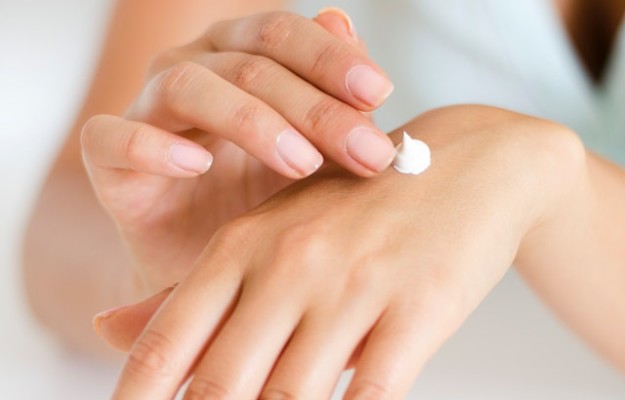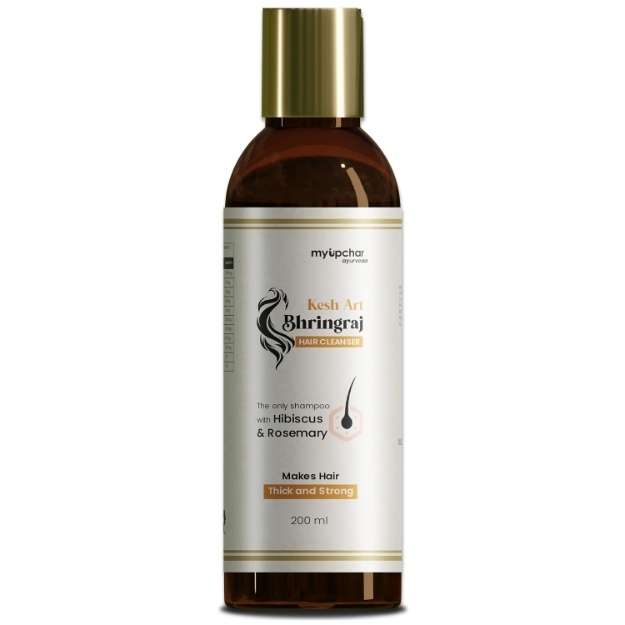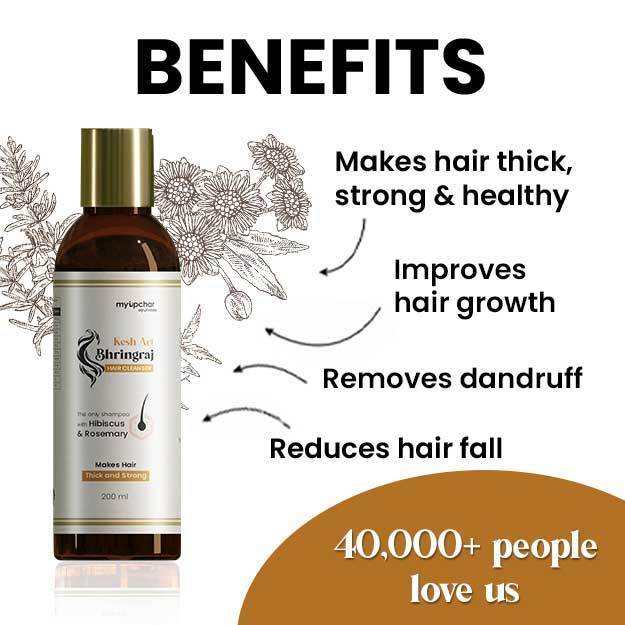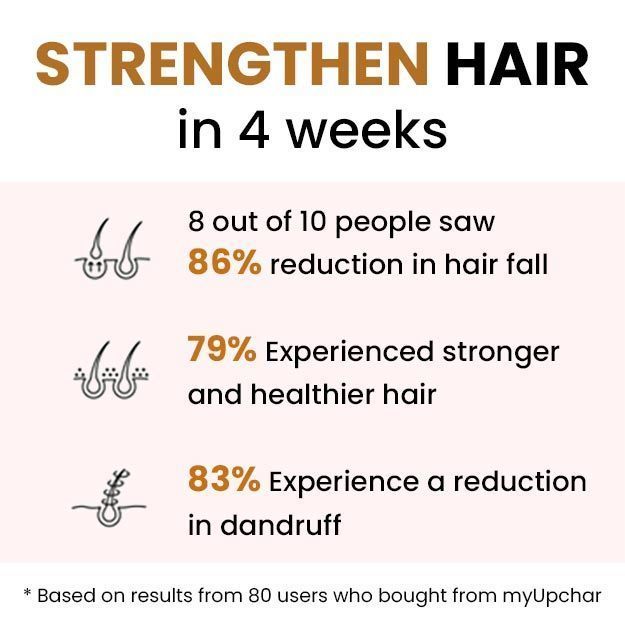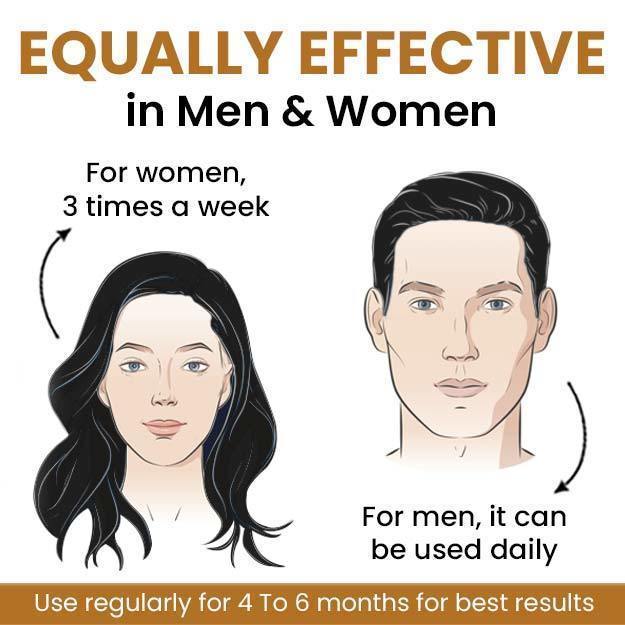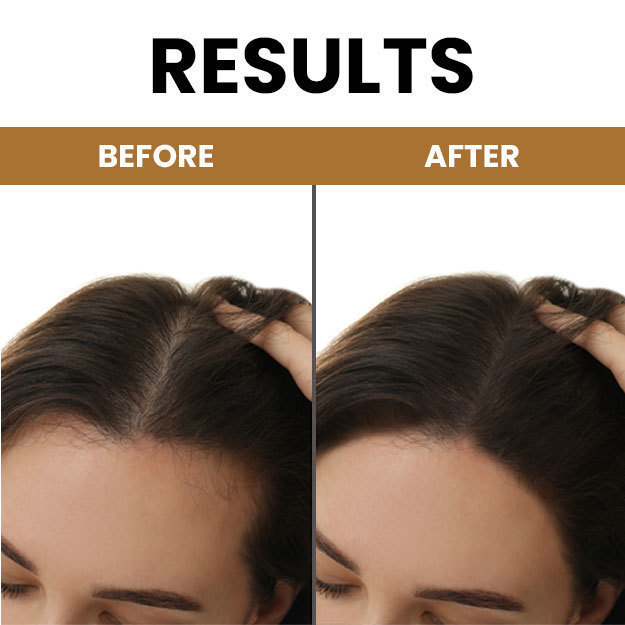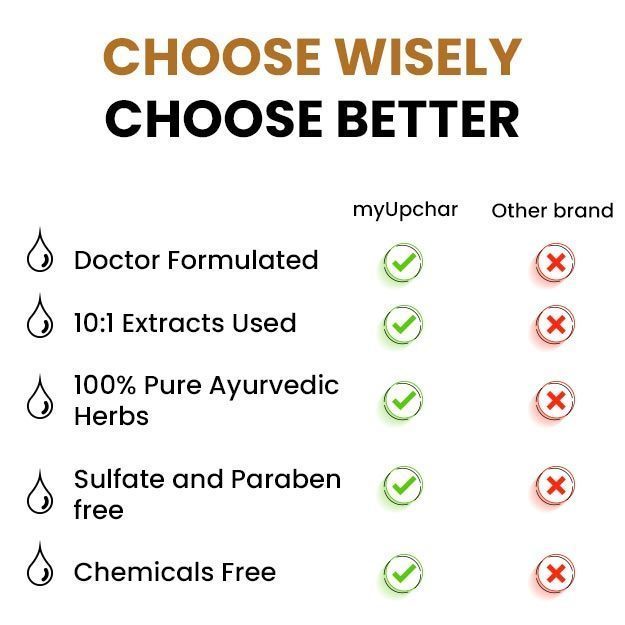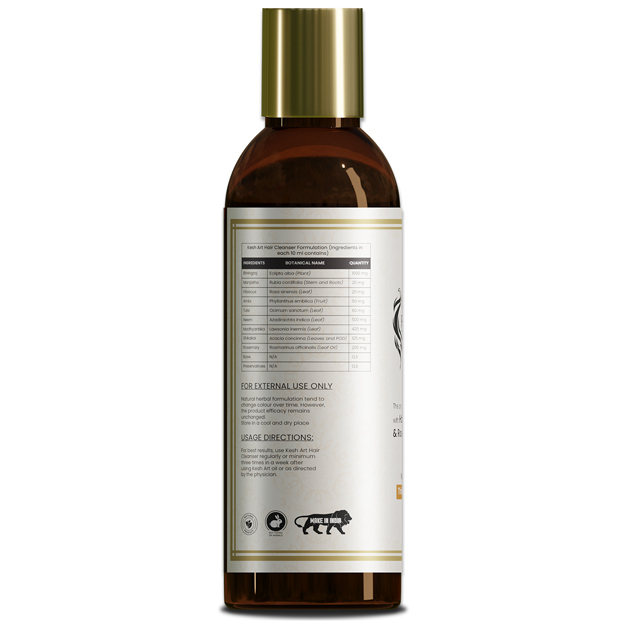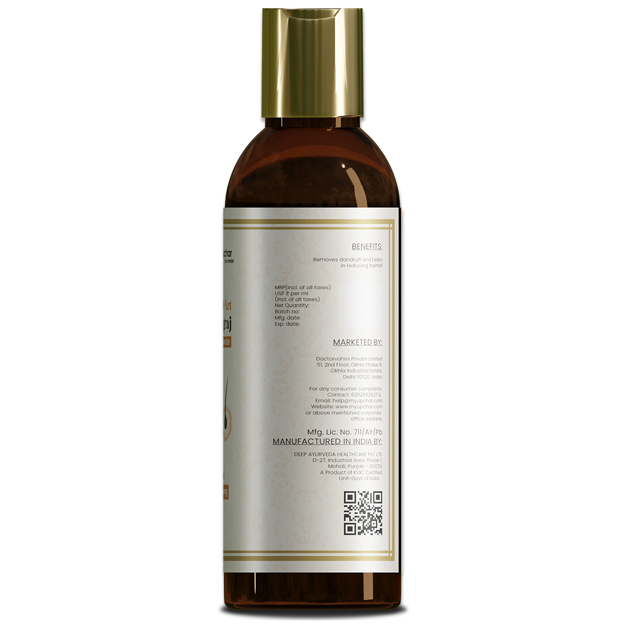Though it is an extremely natural process, defining aging is more difficult than you may think. Surely, it is a natural biological phenomenon which occurs as you age with the progression of time. But aging does not start at the same time for everyone. Furthermore, aging is a wide-ranging phenomenon. It is not just a physical process but also a psychological, intellectual and social one. Since all of these aspects of life have a bearing on your quality of life, all types of aging can affect your health.
However, if you think in a strictly biological sense, the effect of aging on your body is simply this: your organs gradually fail to function the way they used to, which leads to the slowing down of all biological processes of life - ultimately leading to a complete stoppage or death. While this is a completely natural process, many factors play into it and may lead to premature aging too. Leading an unhealthy lifestyle, both physical and psychological, can lead to premature aging.
Lack of proper nutrition and a balanced diet is just one factor that can cause premature aging. Exercise and physical activity is another such factor. The American Academy of Orthopaedic Surgeons (AAOS) suggests that disuse is a leading cause of musculoskeletal aging and so are health issues like obesity, metabolic syndrome, high blood pressure, diabetes and heart disease. Access to healthcare, medications, social security and economic pressures may also play a role in determining the risk of premature aging.
Research shows that leading a healthy life with a nutritious diet, regular exercise and the best stress management techniques can go a long way in preventing premature aging. These techniques, whether natural or medicinal, are known as anti-aging techniques. In recent decades, anti-aging has become a key area of research with a focus on cell aging, skin aging and other aspects that can possibly be treated or postponed to ensure you have a longer, healthier life. Read this article to find out more about aging, premature aging and anti-aging.
- What is aging and why does it happen?
- What is premature aging?
- Signs and symptoms of premature aging
- Treatment for premature aging
- Prevention of premature aging
What is aging and why does it happen?
Aging is a natural phenomenon that occurs to all living things whether they are plants, animals or humans. However, science is as yet unable to completely explain why and how people change as they get older. Some theories suggest aging is determined by your genetic makeup, while others suggest that exposure to ultraviolet light, the body and mind’s wear and tear, metabolism and other similar factors determine the aging process. The only current consensus regarding aging states that it is a complex phenomenon that varies from person to person depending on a number of influences including heredity, environment, culture, diet, exercise, leisure, past illnesses, mental health, underlying diseases, etc.
Each person ages differently, but there are a few stages of life which leave a slightly predictable trail of changes which may be seen as signs of normal aging. Reaching puberty and menarche (the age at which a woman has her first menstrual period) are signs of reproductive maturity and aging, for example. Pregnancy and menopause, similarly, indicate other stages of aging in women. In general, research suggests that some systems of aging may begin in the 30s while others are most likely to show up post the age of 50 years. Again, if you have genetically inherited diseases, infections or have developed other diseases due to your lifestyle habits or weight, then this aging may be exacerbated too.
(Read more: Early menopause and premature menopause)
So, what happens to your body when you naturally age? Your body is made up of organs, tissues and cells which combine and work together for the proper, day-to-day function of your body. As you cross childhood and adolescence and enter adulthood, these organs, tissues and cells continue to lose some function throughout these stages. The subtle signs of this natural aging may not be visible until you cross into your 50s and 60s, which is when the various signs of aging like wrinkles, lower immunity, impaired or difficult movement, slower cognition and metabolism show up.
(Read more: Home remedies for wrinkles on the face)
What is premature aging?
While aging is a natural and normal process that all living things go through, premature aging is a different matter altogether. Premature aging is defined as a phenomenon where a person’s biological age is ahead of his or her chronological age. To make this concept clearer, you need to understand that your chronological age is the number of years you have been alive, i.e the number signified by your birth date. Your biological age, on the other hand, is the age you appear to be based on your health status.
There are many people whose biological age appears to be lower than their chronological age, meaning people whose health status announces them to be younger than their age signifies. People whose health status is worse than it should be at their chronological age are believed to be suffering from premature aging. Studies suggest that people who live in poverty and do not have access to information and healthcare services are most likely to suffer from premature aging. Other factors like underlying diseases (like autoimmune diseases or cancer), lifestyle habits, smoking addiction and alcoholism may also cause premature aging.
However, premature aging should not be confused with premature aging syndrome or progeria. Progeria is usually diagnosed at a very young age since aging is rapidly accelerated in this syndrome as well as in the associated syndromes of Werner syndrome and Hutchinson-Gilford syndrome. Premature aging is much slower than these syndromes, even if it is faster or appears earlier than natural aging.
Signs and symptoms of premature aging
There is no predefined age at which premature aging begins but if the signs start to appear before the age of 35 years then it may indicate that you are suffering from premature aging. Like natural aging, the onset of premature aging and its signs may vary from person to person. The following are some of the signs of premature aging that you should look out for.
Skin pigmentation
Your skin may be one of the first and key places where the signs of aging become apparent. Pigmentation on the skin, whether they are sun spots, age spots or hyperpigmentation due to infections or trauma, may appear on your face, back of your hands and forearms. Since pigmentation is linked with melanin production, people who are fair-skinned and have a low melanin presence are more likely to suffer from skin pigmentation.
(Read more: Melanin deficiency)
Wrinkles
Collagen is the protein that helps your skin stay plump, soft and capable of holding its shape. As you age, the production of collagen slows down and your skin begins to wrinkle. If this wrinkling starts to occur before you turn 30 years of age, you may be suffering from premature aging. The appearance of triangular wrinkles on your hands could also indicate that you have dehydration or excessive sun exposure. It is best to consult a doctor if wrinkles appear prematurely on any part of your body.
Gaunt hands
Observe the hands of somebody older than 70 years of age and you may find gaunt hands that are veiny, wrinkled and slightly misshapen with thin skin. This happens at a certain age due to low production of collagen and other proteins in the body. If your hands are turning gaunt at a much young age, this may be a sure-shot sign of premature aging.
Skin infections and diseases
Dry skin, itchy skin, skin infections and skin disorders and diseases like eczema and contact dermatitis show up when your skin cells are damaged or unhealthy. These issues may happen at an older age or due to an underlying autoimmune condition like psoriasis, but they may also occur frequently as signs of premature aging. If you experience these symptoms regularly then consult a dermatologist.
Hair loss
Your hair health depends on the hair follicles. Hair loss occurs when the stem cells in the follicles die off, which may occur due to hormonal changes, genetic factors, environmental issues, diet and nutritional deficiencies and conditions like alopecia. Hair loss may also occur if hormonal changes, environmental and nutritional factors damage your follicles due to premature aging. Studies show that both men and women with premature aging experience hair loss.
Fatigue
If your body is going through premature aging then it is likely that you will be plagued by fatigue, even after a small amount of activity. This is because accelerated aging at a young age can affect your muscles and energy levels, making you feel more fatigued. Apart from physical fatigue, premature aging may also cause mental fatigue. Studies show that people with premature aging may also suffer from chronic fatigue syndrome.
Impaired cognitive function
As you age, your cognitive function declines gradually. This happens especially after the age of 60 years as your memory, concentration and other aspects of cognition slow down. The same impairments in cognitive function also show up if you have premature aging. You should consult a neurologist if your cognitive function is too impaired at a young age as this could also be a sign of early-onset dementia and other neurocognitive diseases like Alzheimer’s disease and Parkinson’s disease.
(Read more: Poor memory)
Weak bones and muscles
Aging, both natural and premature, affects your body’s capacity to synthesize proteins as well as other essential nutrients like calcium, potassium, vitamin B12 and vitamin D. This affects your musculoskeletal health and may even impair your ability to move. Bone loss is anyways exacerbated after the age of 30, after menopause and if you have malabsorption syndrome. If you are overweight, obese and physically inactive then weak bones and muscles are likely to show up as key signs of premature aging.
Treatment for premature aging
If you notice any signs of premature aging, you can consult your doctor or a dermatologist about it. There are many types of treatments available for premature aging, although a complete reversal of accelerated aging is not likely. These treatments may be simple lifestyle changes you can make to slow down the aging process or treatments recommended by your dermatologist. The following are some of the common treatments recommended for premature aging.
Natural treatment for premature aging
There are a number of natural remedies you could use for premature aging and all of them are simple enough to follow. These natural treatments usually involve nutrition, exercise and lifestyle changes that can improve your overall health status and slow down the aging process. The following are some natural treatments you may be recommended:
- Eating a diet rich in vitamins, minerals and antioxidants, especially vitamin C, D, E, K, calcium, potassium, phosphorus, etc, may help improve your skin and bone health.
- Consuming anti-inflammatory foods like turmeric, green tea and other plant-based sources of phytonutrients may help prevent cell damage and slow down the aging process.
- Including more sources of lean proteins like chicken, fish and eggs or plant-based proteins like chickpeas, soybeans, nuts and seeds may also provide better fuel to your body and keep fatigue and other signs of premature aging at bay.
- Drinking plenty of water throughout the day, every day, can not only keep your body hydrated but may also help flush out toxins that can accelerate cell damage and speed up the aging process.
- Staying physically active and getting at least 30 minutes of exercise every day may help maintain the hormonal balance and keep your muscles and bones healthy too. This can also help treat premature aging.
Medications for premature aging
Medications and dermatological treatments for premature aging are mostly focused on controlling the signs of aging on the skin. This is why anti-aging products ranging from creams, gels and cleanses to chemical peels and facelifts are now gaining popularity all over the world. The following are some of the common medications and dermatological treatments used to treat premature aging, especially of the skin:
- Topical application of creams, gels or lotions with retinoids or vitamin A, vitamin C, vitamin E and other micronutrients needed for skin health may be recommended. These creams are usually given for a short period of time since overuse may have a negative impact on your skin as well.
- A sunscreen above SPF 30, fortified with other micronutrients, may be used to deal with sun exposure and sun damage. (Read more: Side effects of sunscreen and how to use it properly)
- If you have severe wrinkles or sagging skin then treatments like fillers, facelifts and botox injection may be recommended to you under the guidance of a dermatologist.
- Dietary supplements may be provided to manage hair loss, aging skin, gaunt hands and other signs of premature aging. You must never exceed the recommended dosage for these supplements though as it may cause toxicity and other complications.
Prevention of premature aging
Once started, premature aging is impossible to completely stop and very difficult to control the pace of. It is therefore best to adopt an anti-aging lifestyle and preventive methods early in life so that premature aging never plagues you. There are many preventive methods you could adopt, and the best part about them is that most of them are also effective in postponing natural aging. The following are some such preventive methods you can use:
- Make sure you consume a nutritious and balanced diet that not only covers all the food groups but also includes good sources of micronutrients and essential macronutrients.
- Get sufficient exercise and be physically active. This can ensure that your muscles, bones and joints stay in good working order throughout your lifetime. Exercise and fitness may also prevent obesity and complications arising from it.
- Protect your skin from sun exposure, air pollution and other environmental factors that can cause infections, diseases and premature aging. Be gentle with your skin and follow a proper cleansing and moisturizing ritual every day. Use sunscreen throughout the year, no matter what the season.
- Avoid smoking, even passive smoking. (Read more: How to quit smoking)
- Avoid excessive alcohol consumption.
- Get sufficient sleep every night and design a regular routine to help you fall asleep faster. (Read more: How to fall asleep faster)
- Practice any stress management techniques you may have access to, including meditation, yoga or hobbies.

